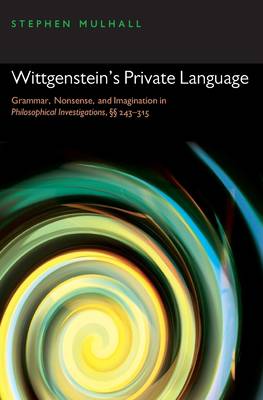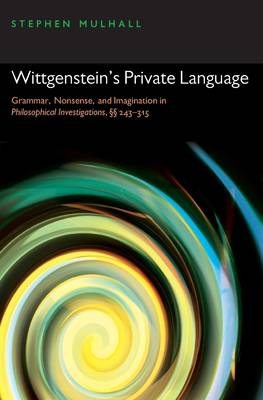
Je cadeautjes zeker op tijd in huis hebben voor de feestdagen? Kom langs in onze winkels en vind het perfecte geschenk!
- Afhalen na 1 uur in een winkel met voorraad
- Gratis thuislevering in België vanaf € 30
- Ruim aanbod met 7 miljoen producten
Je cadeautjes zeker op tijd in huis hebben voor de feestdagen? Kom langs in onze winkels en vind het perfecte geschenk!
- Afhalen na 1 uur in een winkel met voorraad
- Gratis thuislevering in België vanaf € 30
- Ruim aanbod met 7 miljoen producten
Zoeken
Omschrijving
Stephen Mulhall presents a detailed critical commentary on sections 243-315 of Wittgenstein's Philosophical Investigations: the famous remarks on 'private language'. In so doing, he makes detailed use of Stanley Cavell's interpretations of these remarks; and relates disputes about how to interpret this aspect of Wittgenstein's later philosophy to a recent, highly influential controversy about how to interpret Wittgenstein's early text, the Tractatus Logico-Philosophicus, by drawing and testing out a distinction between resolute and substantial understandings of the related notions of grammar, nonsense and the imagination. The book is concerned throughout to elucidate Wittgenstein's philosophical method, and to establish the importance of the form or style of his writing to the proper application of this method.
Specificaties
Betrokkenen
- Auteur(s):
- Uitgeverij:
Inhoud
- Aantal bladzijden:
- 158
- Taal:
- Engels
Eigenschappen
- Productcode (EAN):
- 9780199556748
- Verschijningsdatum:
- 15/11/2008
- Uitvoering:
- Paperback
- Formaat:
- Trade paperback (VS)
- Afmetingen:
- 132 mm x 198 mm
- Gewicht:
- 199 g

Alleen bij Standaard Boekhandel
+ 148 punten op je klantenkaart van Standaard Boekhandel
Beoordelingen
We publiceren alleen reviews die voldoen aan de voorwaarden voor reviews. Bekijk onze voorwaarden voor reviews.









